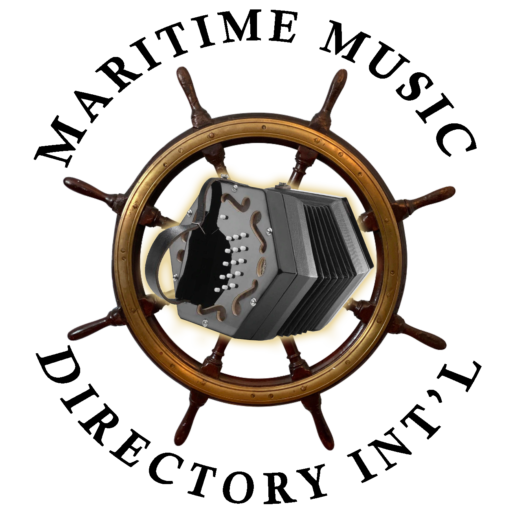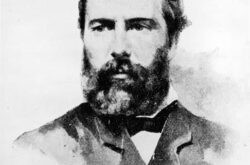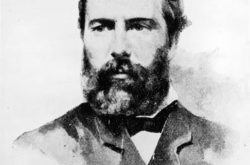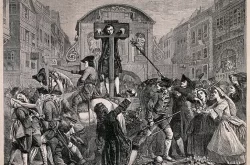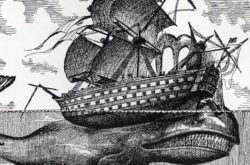Herman Melville sails for the South Seas (3 Jan, 1841)
On January 3, 1841, Herman Melville ships out on the whaler Acushnet to the South Seas.
Melville was born in New York City in 1819. A childhood bout of scarlet fever permanently . . .
Moby Dick First Published (14 Nov 1851)
Moby-Dick is now considered a great classic of American literature and contains one of the most famous opening lines in fiction: “Call me Ishmael.” Initially, though, . . .
Moby Dick First Published (1851)
Moby-Dick is now considered a great classic of American literature and contains one of the most famous opening lines in fiction: “Call me Ishmael.” Initially, though, . . .
Robinson Crusoe Author Spends Final Day in Pillory (31 July 1703)
Daniel Defoe of Robinson Crusoe fame spent the last of his three days in the pillory after being convicted of seditious libel. He was surrounded at the pillory by his supporters, . . .
Thursday’s 20 July Seminar: Rebels at Sea: Privateering in the American Revolution with Eric Jay Dolin
The NMHS Seminar Series Presents
Rebels at Sea: Privateering in the American Revolution
with Best Selling Author Eric Jay Dolin
Just chosen as a finalist for the 2023 book award . . .
Whaleship Essex Sunk by Sperm Whale (20 Nov 1820)
The American whaler Essex, which hailed from Nantucket, Massachusetts, is attacked by an 80-ton sperm whale 2,000 miles from the western coast of South America.
The 238-ton . . .
